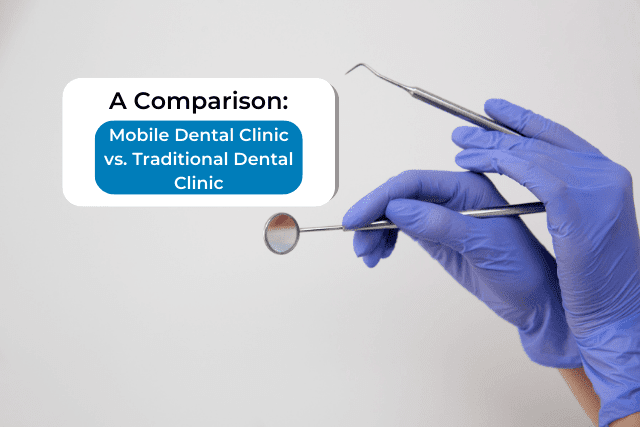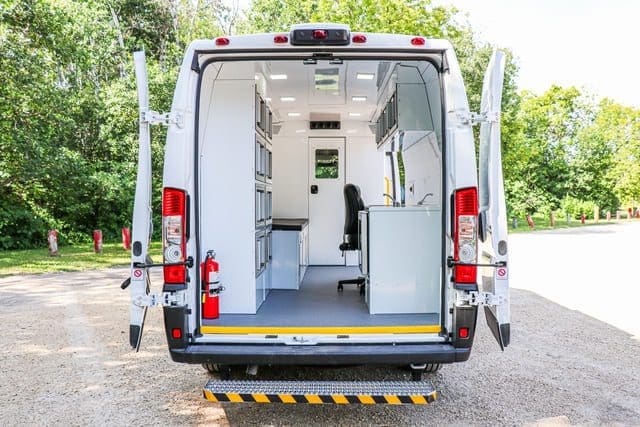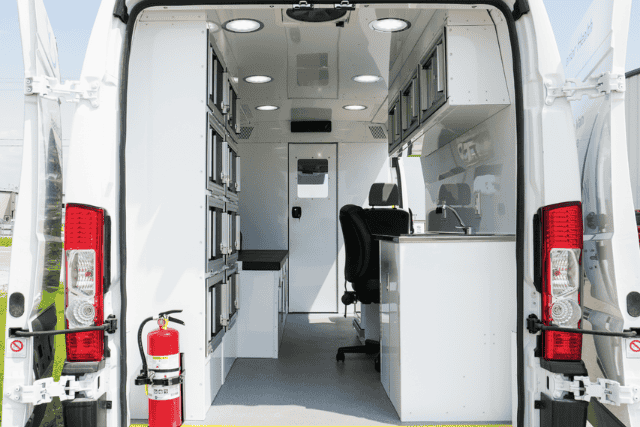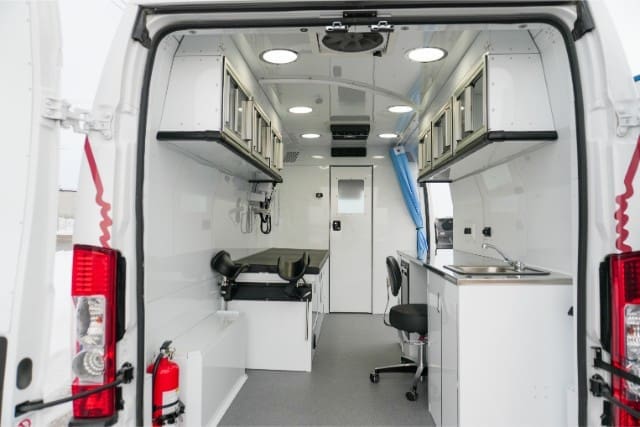Maybe you’re a dental organization or a dentist looking for innovative ways to expand your reach. Have you ever wondered if starting a mobile dental clinic could make a bigger impact than opening a traditional dental office? It’s a question that dental organizations across the country are wondering about—and for good reason.
For many communities, access to quality dental care is a major challenge. Patients face barriers like long commutes, mobility issues, or a lack of nearby dental providers. Traditional dental offices, while valuable, can’t always bridge these gaps. This leaves countless people without essential care, and dental organizations wonder how they can reach more patients.
But here’s the challenge: transitioning to or starting with a mobile dental unit can feel overwhelming. From understanding the cost to figuring out logistics, it’s easy to feel paralyzed by uncertainty. What happens if you stick to the status quo? Patients in need remain underserved, and your organization misses an opportunity to transform lives and grow its reach.
At AVAN Mobility, we understand what you’re going through. With over a decade of experience manufacturing mobile medical units, we’ve helped countless organizations navigate this decision. Our mission? To reduce barriers to healthcare and transportation, ensuring care is accessible for all.
In this article, we’ll walk you through everything you need to know about mobile dental clinics vs. traditional dental clinics. After you’re finished reading, you’ll have a better idea of whether going mobile is the right move for your organization and your patients.
When does a mobile dental clinic make more sense than a traditional dental office?
Not every patient can easily get to a dental office. For some, it’s more than just an inconvenience—it’s impossible. That’s where a mobile dental clinic can make all the difference. Here are some situations where going mobile is the better choice:
1. Helping people in hard-to-reach areas
Think about patients who live in small towns or rural areas, far from the nearest dental office. For them, getting to an appointment could mean driving hours, or skipping care altogether. A mobile dental unit solves this by bringing care directly to their communities.
Example: A small farming town with no dental clinic nearby could use a mobile clinic for cleanings and checkups.
2. Serving seniors and people with mobility issues
Some patients, like seniors in nursing homes or people with disabilities, have trouble leaving home. Visiting a traditional clinic might require a caregiver’s help, special equipment, or a lot of time. A mobile dental van lets these patients get care where they’re most comfortable—at home or in a care facility. Let’s look at a few examples:
- A mobile unit visiting a retirement home once a month helps residents keep up with their dental health without leaving the building.
- A mobile dental clinic could address the oral health needs of patients in rural Appalachia, where long travel times often prevent access to regular care.
- In urban areas like South Los Angeles, mobile dental units parked outside schools can help children access dental cleanings and exams they might not otherwise receive.
3. Partnering with schools and community programs
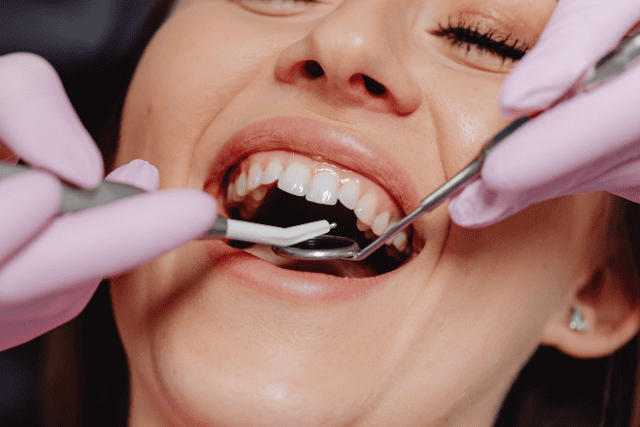
1 in 5 children across the U.S. has untreated cavities. Children’s access to dental care can be limited, especially in low-income areas. Schools and community centers can work with mobile dental clinics to offer on-site services like cleanings, fluoride treatments, and exams.
Example: A mobile clinic parked outside a school could help kids who’ve never been to a dentist get the care they need.
4. Responding to emergencies or special events
Mobile units are flexible and can quickly adapt to serve people during public health crises, natural disasters, or community health fairs. They bring care directly where it’s needed.
Example: After a hurricane, a mobile dental clinic can be set up near a shelter to provide care to families who lost their homes.
When does a traditional dental office make more sense than a mobile clinic?
While mobile dental clinics are great for bringing care to people who need it most, they aren’t always the perfect fit. In some cases, a traditional dental office might work better. Let’s look at when staying in one location makes more sense.
1. Handling more advanced treatments
Some dental procedures need extra equipment or space that a mobile unit can’t provide. For things like surgeries or braces, a traditional office might be the better choice.
Example: If a patient needs a wisdom tooth removed or orthodontic care, a traditional clinic may have the tools and setup needed.
2. Creating a familiar space
Patients in cities often like visiting the same place for their dental care. A traditional office gives them a consistent and comfortable environment they are used to.
Example: Families in suburban neighborhoods might prefer visiting a familiar dental office for all their checkups and treatments.
3. Managing a busy schedule
If your dental clinic serves a lot of patients every day, a fixed location might handle the volume better. A traditional office has the space and staff to keep up with demand.
Example: A busy office in the city center might be able to see more patients each day than a mobile unit.
4. Offering a wide range of services
A traditional dental office can provide everything from basic cleanings to cosmetic services in one place. This might make it a bit easier for patients to get all the care they need in one visit.
Example: A patient could come in for a cleaning, teeth whitening, and braces consultation all in one stop.
Mobile dental clinics vs. traditional dental clinics: Which should you choose?
Choosing between a mobile dental clinic and a traditional dental office comes down to your organization’s goals and the needs of the community you serve. Each option has unique benefits, and the right choice depends on how you want to deliver care.
Consider a mobile dental clinic if:
- Your goal is to reach rural areas or underserved communities where dental care is limited or unavailable.
- You want to serve patients with mobility issues, such as seniors, people with disabilities, or homebound individuals.
- Flexibility is a priority, and you’d like to move locations to serve different groups, such as schools, nursing homes, or community centers.
- You’re focusing on public health initiatives or events, like offering free cleanings or screenings at health fairs.
Consider a traditional dental clinic if:
- You’re in an area with a steady demand for dental care and want to serve a large, stable patient base.
- Your practice provides specialized treatments or services that require advanced equipment and infrastructure.
- You want to build ongoing relationships with patients who prefer visiting the same location regularly.
- Your community has convenient access to transportation, making it easy for patients to visit your office.
Learn more about mobile dental clinics
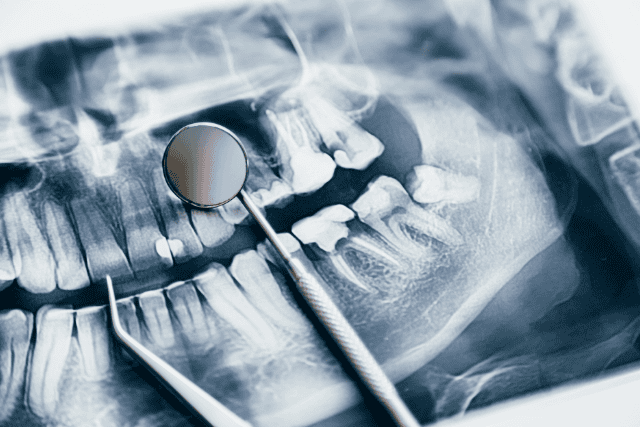
You might have landed on this article because you’re a dentist trying to decide whether to start a mobile or fixed dental clinic. You now have a better understanding of how mobile dental clinics can be a great solution for breaking down barriers that underserved populations face.
At AVAN Mobility, we’re passionate about helping organizations like yours bring life-changing care to communities nationwide. From designing mobile dental units that reach rural areas to providing reliable support every step of the way, we’re here to ensure you succeed. Because at the end of the day, our work isn’t just about vehicles—it’s about transforming lives and creating healthier futures for everyone.
If you have any questions, click the button below to talk to a mobility expert.
We’re here to answer your questions, brainstorm ideas, and help you find the perfect solution for your needs.
Not ready to talk yet? No problem. Check out some of our other resources to keep learning more about mobile dental clinics and how they can work for you.
Start off by checking out our article on some ways you can apply for mobile health grants. This guide should steer your organization in the right direction if you’re struggling to find funding.
After that, learn more about who we are and what we do at AVAN Mobility.
